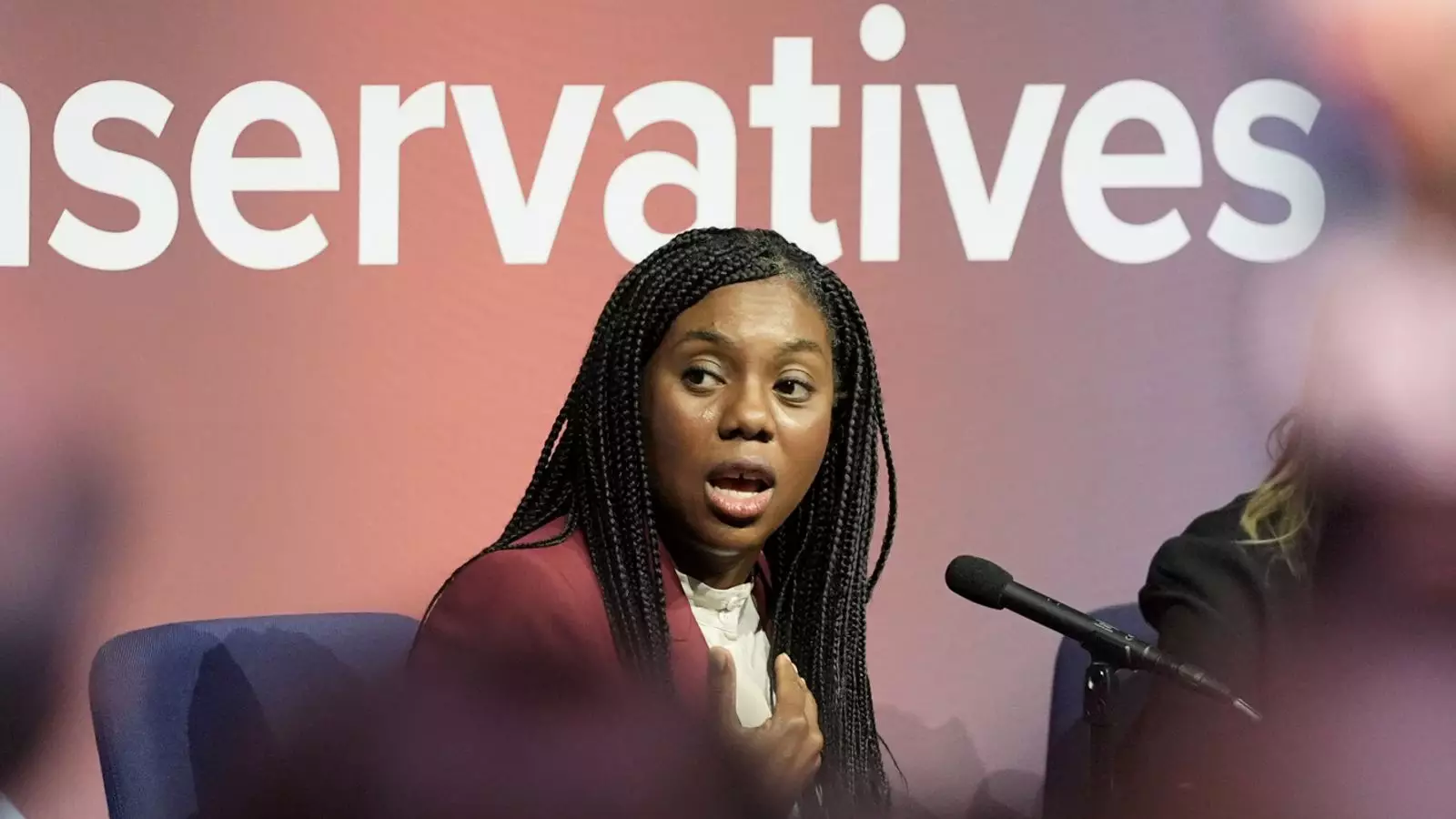Kemi Badenoch, a prominent figure within the Conservative Party and a contender for its leadership, has recently found herself embroiled in a storm of controversy following her remarks about civil servants at a party conference fringe event. Her assertion that 5-10% of civil servants are “very bad” and potentially deserving of prison time has sparked widespread backlash and raised questions about her leadership approach. The implications of her comments extend beyond mere political rhetoric; they delve into the nuances of governance, public trust, and the relationship between elected officials and the civil service.
During a discussion hosted by the Spectator magazine, Badenoch lamented what she perceives as a small fraction of civil servants compromising the integrity of government through actions such as leaking official information. While she acknowledges that a majority of civil servants strive to perform their duties well, the stark language she employed to describe those she views as problematic has drawn sharp criticism. It reflects a broader trend in contemporary political discourse where sharp demarcations are drawn between perceived allies and adversaries within governmental entities.
The immediate criticism from union representatives, notably from Dave Penman, general secretary of the FDA union, underscores the gravity of Badenoch’s claims. Penman pointedly questioned the absence of evidence to substantiate her allegations, urging her to withdraw her statements unless she could provide concrete proof. His remarks serve a dual purpose: they defend civil servants from potentially baseless accusations while also holding politicians accountable for irresponsible rhetoric. The call for accountability reflects a growing demand among constituents for transparency and ethical governance from their leaders.
In a political landscape punctuated by accusations and an often polarized atmosphere, the emphasis on evidence has never been more critical. This reaction from Penman is not merely a defense of civil servants but also a challenge to the ethos of careful discourse in politics. The demand for evidence showcases a societal expectation that political figures conduct themselves with a higher standard of integrity, especially when making significant accusations against those who serve the public.
Badenoch’s self-described image as a “straight talker” poses both opportunities and challenges as she vies for leadership within the Conservative Party. The allure of populism often lies in its promise of honesty and directness, yet it can easily spiral into sensationalism when statements lack grounding in reality. Her remarks about maternity pay and civil service conduct reveal a broader strategy that prioritizes divisive issues over nuanced discussions about policy and governance.
This trend is particularly concerning as it undermines the very foundations of civil service—a body designed to enact policies with impartiality and expertise. By labeling a significant number of civil servants as unworthy of their roles, Badenoch risks fostering an environment of distrust that can hamper effective governance, ultimately affecting public administration’s functionality.
As Badenoch navigates the intricacies of leadership candidacy amid her controversial statements, the current political climate indicates a competitive landscape. Recent polls suggest that while she enjoys popularity among party members, other contenders like Robert Jenrick are closing the gap. This dynamic environment adds a layer of complexity; each candidate is compelled to balance populist sentiment with the need for substantive policy discussions.
In the context of the broader electoral landscape, Badenoch’s remarks can be seen as both an asset and a liability. While her straightforward approach resonates with some voters seeking authenticity, it may alienate those who prioritize thoughtful governance over theatricality. The challenge lies in aligning her image with the competencies expected of a leader—an endeavor that requires both strategic communication and responsible leadership.
As Kemi Badenoch continues her quest for leadership, the necessity for respectful and evidence-based discourse becomes increasingly apparent. Her controversial remarks about civil servants serve as a pivotal reminder of the delicate balance politicians must uphold between honesty and accountability. As voters, advocates, and colleagues alike scrutinize her words, the challenge remains for all political leaders to rise above mere rhetoric and engage in informed, respectful dialogue that preserves the integrity of public service. In doing so, they not only honor the civil servants who work tirelessly for the public good but also foster a political environment conducive to constructive governance.

Leave a Reply